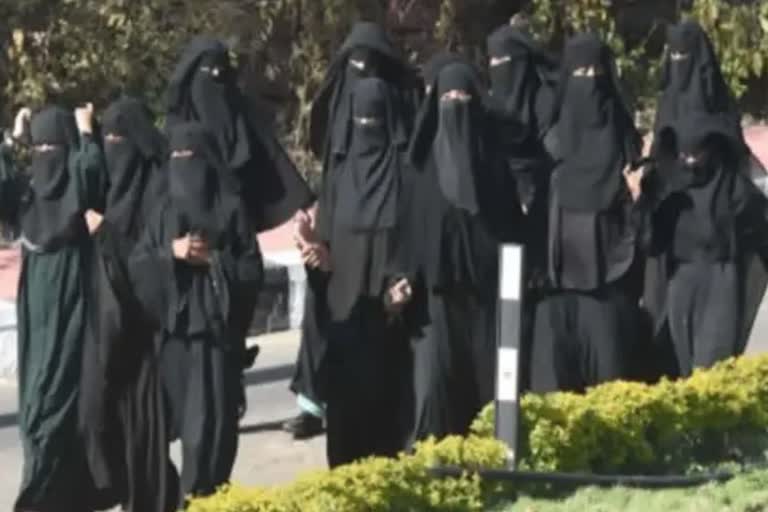New Delhi : The Hijab stalemate continues after the two member bench of Supreme Court Comprising Justice Shudhanshu Dhulia and Justice Hemant Gupta differed in their opinion regarding the ban on Hijab pronounced by Karnataka High Court. The case has been referred to Chief Justice of India UU Lalit for final hearing.
The apex court had earlier reserved its order on various petitions challenging Karnataka High Court upholding the ban on hijab in educational institutes. Upholding the Karnataka High Court Judgement Justice Hemant Gupta dismissed the petitions against the hijab ban, while Justice Sudhanshu Dhulia allowed them.
In his judgement Justice Hemant Gupta upheld the ban verdict of Karnataka High Court and said, “In my order there are 11 questions framed. I have answered all the questions against the appeals. I am proposing to dismiss the appeals”.
On the other hand, Justice Sudhanshu Dhulia allows all the appeals and sets aside the judgment of the Karnataka High Court. “The main thrust of my judgment is that the entire concept of essential religious practice was not essential to the dispute. The High Court took a wrong path. It is ultimately a matter of choice and Article 14 and 19,” Dhulia said.
“It is a matter of choice, nothing more and nothing less. The foremost question in my mind was the education of the girl child. Are we making her life any better? That was a question in my mind,” Dhulai added.
The arguments in the matter went on for 10 days in which 21 lawyers from the petitioners' side and Solicitor General Tushar Mehta, Additional Solicitor General KM Nataraj, Karnataka Advocate General Prabhuling Navadgi argued for the respondents. The court was hearing various pleas against Karnataka HC's judgement upholding the Karnataka Government's decision to direct educational institutes to prescribe uniforms in educational institutes. Addressing the court, Senior Advocate Dushyant Dave, in his rejoinder submission had said that the Karnataka Government Circular which enforced the dress code has no reference to the Popular Front of India (PFI).
Senior Advocate Dave was representing the petitioner. Various petitioners have approached the apex court challenging the Karnataka HC order upholding the Karnataka government's order which directs strict enforcement of schools and colleges' uniform rules. One of the appeals in the top court has alleged "step-motherly behaviour of government authorities which has prevented students from practising their faith and resulted in an unwanted law and order situation".
The appeal said the High Court in its impugned order "had vehemently failed to apply its mind and was unable to understand the gravity of the situation as well as the core aspect of the Essential Religious Practices enshrined under Article 25 of the Constitution of India". A bench of Karnataka High Court comprising Chief Justice Ritu Raj Awasthi, Justice Krishna S Dixit, and Justice JM Khazi had earlier held that the prescription of uniform is a reasonable restriction that students could not object to and dismissed various petitions challenging a ban on hijab in education institutions saying they are without merit. The hijab row erupted in January this year when the Government PU College in Udupi allegedly barred six girls wearing the hijab from entering.
Following this, the girls sat in protest outside the college over being denied entry. After this, boys from several colleges in Udupi started attending classes wearing saffron scarves. This protest spread to other parts of the state as well leading to protests and agitations in several places in Karnataka.
As a result, the Karnataka government said that all students must adhere to the uniform and banned both hijab and saffron scarves till an expert committee decided on the issue. On February 5, the pre-University education board released a circular stating that the students could only wear the uniform approved by the school administration and that no other religious attire would be allowed in colleges.



